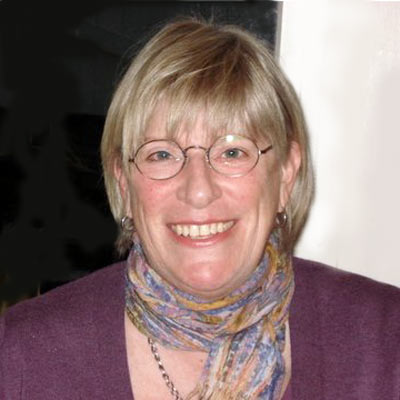Rosemary Hepözden has three decades of editing, writing and teaching experience.
She is the author of three nonfiction books, and has a fourth book due to be published by New Holland Publishers in June 2014.
As an editor, she has worked as a freelancer and also in-house for book publishers in Canada and New Zealand. She also has 14 years’ experience in magazine publishing, as an editor, sub-editor, proofreader and staff writer for a range of consumer and trade titles. Rosemary tutors the Grammar for Writers Course, as well as the Write a Non-fiction Book Course at NZ Writers’ College.
We ask her some questions about the writing life.
Q: How did you get into writing?
A: I was loving my first magazine job – as a PA to the editor – when the time came for a standard performance review. To my astonishment, the editor said she would like me to try some feature writing. To be a writer: what a fantastic thought! But what if I was hopeless?
I managed to squeak out an “Okay!”, then drove home in a blind panic. I locked the door, poured a large whisky and stared at the TV set, unable to believe that I had just been offered an opportunity to fulfil one of my deepest, secret wishes. Just then, there was a knock on my door. It was my editor – checking in on me, she said, because she realised that I might be a bit shocked, and she wanted to convince me that I really could do it.
Over the nearly three decades since then, as I’ve gone from magazine features to non-fiction books, she’s been unrelenting in her belief and enthusiasm.
So how did I get into it? I was given a chance by an unfailingly encouraging editor.
Q: What is the most unexpectedly wonderful aspect of being a writer?
A: It’s the mysterious way you can sometimes hear good sentences taking shape in your mind when you’re doing something tedious like peeling carrots or putting out the rubbish bins.
It’s also the joy of being able to work in your pyjamas.
Q: What do you see as your biggest writing achievement?
A: My third book. I generated the idea, put together a proposal, swallowed a couple of rejections, and persisted until a publisher said yes. Once I had the contract, I researched and wrote like a creature possessed, and managed to make the deadline. That felt good!
Q: How hard or easy would you say it is to make a living as a writer?
A: Unless you’ve got an in-house job with an established magazine, or you’re a freelancer with a willingness to turn your hand to anything and work at speed, it’s hard. As a writer of books, it’s almost impossible, actually – unless you’re Richie McCaw, say, or Eleanor Catton. I’m neither a national sports hero nor an odds-beating writer of quirky fiction that appeals to literary judges. I could never support myself and my son on earnings from book sales. I keep reminding myself, though, that there are plenty of other reasons for writing, besides making money.
Q: What advice would you give other aspirant writers?
A: Regard writing as your hobby, not your retirement plan.
Q: Would you recommend they do your course(s), and why?
A: You can only sit at your computer and write in your pyjamas because you’re on your own. Writing is inherently a lonely, self-absorbed task. It’s also a compulsion, so you may not be able to avoid it. Having arguments with yourself about where you’re going and how you’re doing can be exhausting. The Write Your Non-Fiction Book Course is like having an honest friend who can keep you on track, giving you a few pointers and possibly some new ideas, as you work your way towards 25,000 beautifully polished words.
The reason for enrolling in Grammar for Writers Course is that it will help you look good. Your life will never depend on being able to tell your subordinating conjunctions from your dangling modifiers, but knowing these things will help you ensure your writing is devoid of sloppy grammar, spelling and punctuation errors that can dampen the enthusiasm of your readers. It gives you the tools you need to be able to assess your own work. Instead of thinking “I know this doesn’t sound right, but I don’t know what’s wrong”, you’ll be able to spot just how to eliminate those off-putting errors.
Q: What stand-out qualities do you look for in writing that you assess?
A: Sparkle, polish, originality… and just a bit of magic.












